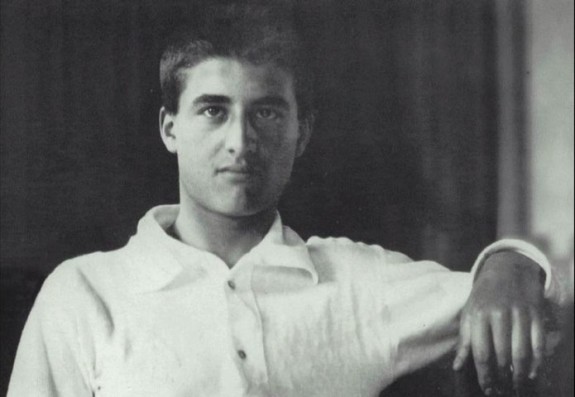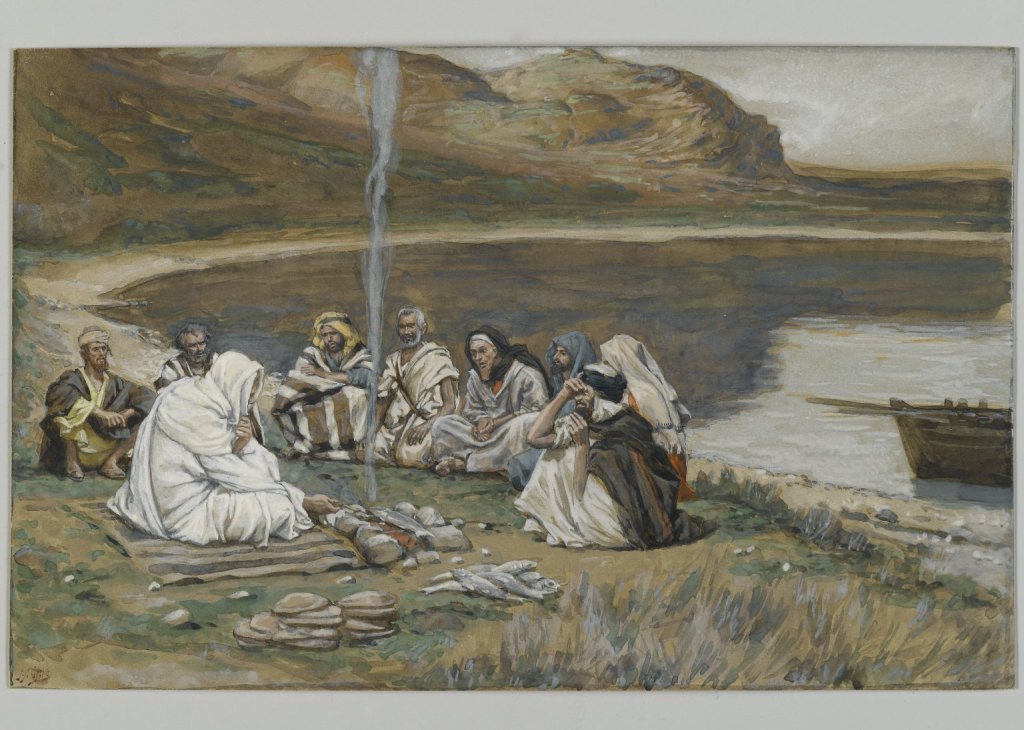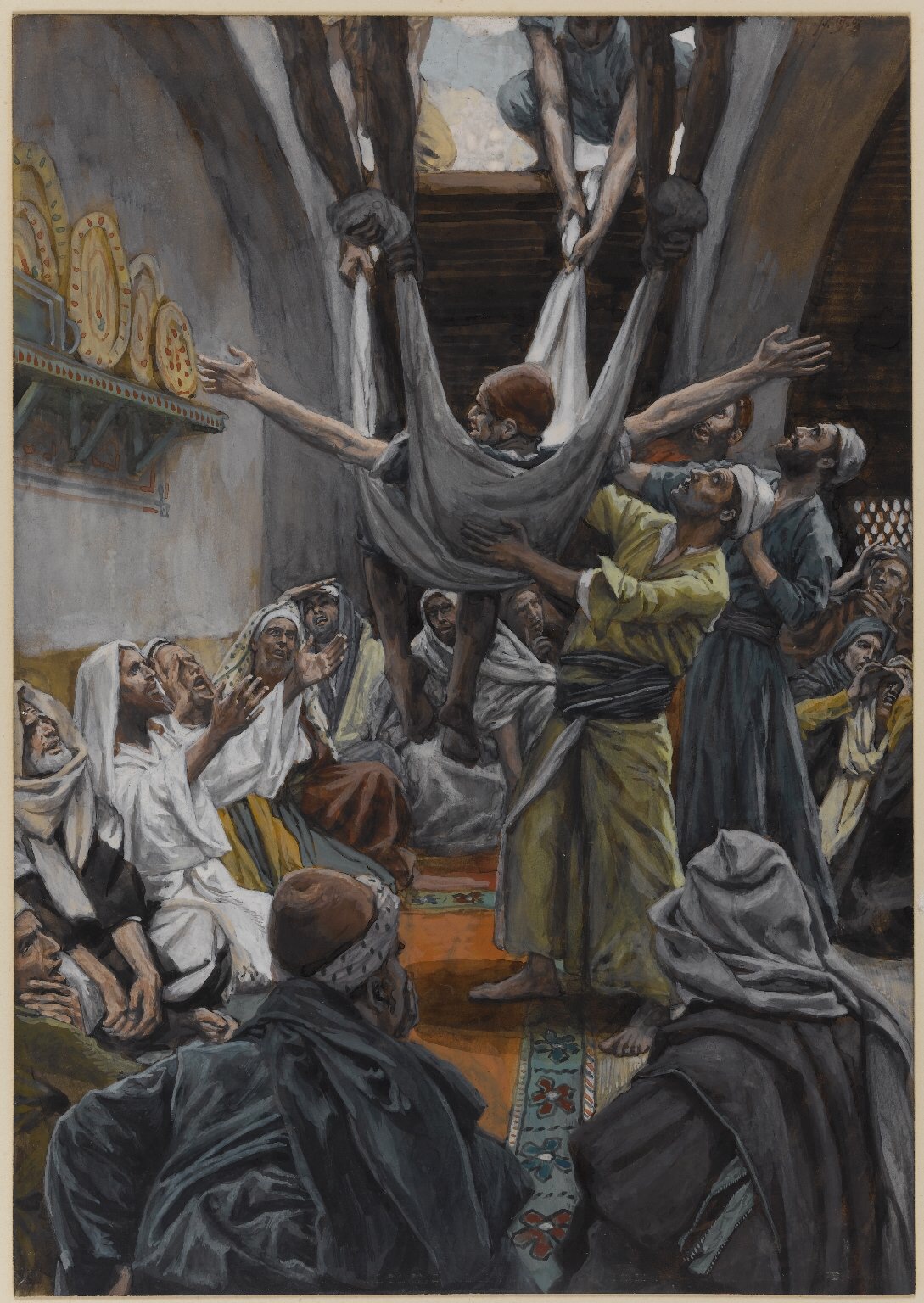Today we celebrate the feast of our patron, Blessed Pier Giorgio Frassati. As we remember the life of this remarkable young man, let us reflect on four key components of his spirituality, the four pillars of our Frassati Fellowship of NYC.
Adoration of Christ in the Eucharist
The Eucharist was absolutely central to Pier Giorgio’s life. He received Christ with joy each morning in Holy Communion, and he carried Him forth to everyone he met throughout the rest of his day. Pier Giorgio knew that he could not rely on his own strength; rather, he sought to draw nearer to Jesus, that through relationship with Him and intimate communion, he might become a vessel for God in the world. He once wrote to his fellow young people, urging them to seek Jesus in the Eucharist:
And remembering that apostle of the Holy Eucharist, the Holy Father Pius X of venerable memory, I urge you with all the strength of my soul to approach the Eucharistic Table as often as possible. Feed on this Bread of the Angels from which you will draw the strength to fight inner struggles, the struggles against passions and against all adversities, because Jesus Christ has promised to those who feed themselves with the most Holy Eucharist, eternal life and the necessary graces to obtain it.
And when you become totally consumed by this Eucharistic Fire, then you will be able to thank with greater awareness the Lord God who has called you to be part of His flock and you will enjoy that peace which those who are happy according to the world have never tasted. Because true happiness, young people, does not consist in the pleasures of the world and in earthly things, but in peace of conscience which we can have only if we are pure in heart and in mind.
Blessed Pier Giorgio Frassati, in a letter to the members of “Catholic Youth” of Pollone, July 29, 1923
Spiritual Growth through Authentic Friendship
Within the Frassati Fellowship of NYC, we are blessed to have experienced firsthand the transformative grace of holy friendship. Pier Giorgio cherished his own friendships and prayed fervently for each of his friends. We can tell by reading his letters to them how sincerely he delighted in each of them, in all their little quirks and unique personalities. He was deeply grateful for the gift of his friends and was inspired and enlightened by their presence. Pier Giorgio fostered friendships in which each person encouraged the other to grow closer to God and become the people God had created them to be:
In this earthly life after the affection for parents and sisters, one of the most beautiful affections is that of friendship; and every day I ought to thank God because he has given me men and lady friends of such goodness who form for me a precious guide for my whole life. Every time I visit Clementina I’m edified by her great kindness and I think of the immense Good that such a beautiful Soul has certainly done and will do. Surely Divine Providence in His Marvelous Plans sometimes uses us miserable little twigs to do Good and we sometimes not only don’t want to know God but instead dare to deny His existence; but we who, by the Grace of God, have the Faith, when we find ourselves in the presence of such beautiful souls, surely nourished by Faith, we cannot but discover in them an obvious sign of the Existence of God, because one cannot have such a Goodness without the Grace of God.
Blessed Pier Giorgio Frassati, in a letter to Marco Beltramo, April 10, 1925
Love of the Outdoors
Pier Giorgio had a special awareness of God’s presence in creation. The mountains were the place where he could feel especially close to God, set apart from the distractions of everyday life and in awe of the beauty of nature. He reminds us of how powerful it can be to disconnect from all the noise that surrounds us and find peace in nature, appreciating the incredible beauty God has created for us:
Do you still intend to climb to the top of the Rognosa by the crest this spring, if God gives us life? I’m always ready because every day I fall in love with the mountains more and more and, if my studies would allow me to do it, I would spend entire days on the mountains contemplating in that pure air the Greatness of the Creator.
Blessed Pier Giorgio Frassati, in a letter to Marco Beltramo, August 6, 1923
A Heart for the Poor
Pier Giorgio’s devotion to God bore fruit not only in his friendships but also in his devotion to the poorest members of his community. He shared his joy with those most in need, never hesitating to sacrifice his own money or goods for the sake of others. He truly saw the presence of Christ in the poor, and he developed beautiful relationships with those he visited. He cared for them deeply, and his own faith was inspired by his encounters with them:
As we grow closer to the poor little by little we gain their confidence and can advise them in the most terrible moments of this earthly pilgrimage. We can give them the comforting words of faith and we often succeed, not by our own merit, in putting on the right path people who have strayed not out of malice. I think I can say that the Conference of St. Vincent with its visits to the poor serves to curb our passions, it gives us increasing incentives to get on the right road by which we are all trying to reach the great harbor. Seeing daily the faith with which families often bear the most atrocious sufferings, the constant sacrifices that they make and that they do all this for the love of God often makes us ask this question: I, who have had so many things from God, have always been so neglectful, so bad, while they, who have not been privileged like me, are infinitely better than me. Then we resolve in our conscience to follow the way of the Cross from then onward, the only way that leads us to Eternal Salvation.
Blessed Pier Giorgio Frassati, in a speech to FUCI students
On this ninety-sixth anniversary of Pier Giorgio’s entrance into heaven, let us remember his life with gratitude for the beautiful example he has given us of authentic holiness. Just as he was devoted to his friends on earth, he is still a most devoted friend to us in heaven. Let us seek his friendship, for he will be a sure guide to lead us closer to God.




 First of all, Jesus tells us we are friends, not slaves—if we do what He commands us. Wait. Do friends normally take orders from one another? Then He says we are not slaves because we know what our Master is doing. But…do we really? At the time He spoke these words, his apostles had no idea that He was about to suffer and die (though, to be fair, it’s not like He didn’t warn them). The disciples seemed pretty clueless most of the time about what Jesus was really up to. Can we truly say that we know what our Master is doing? I think more often we feel we are flying blind, having to trust Him without really understanding what His plan is. After all, so much of our Catholic worldview is grounded in the concepts of mystery and faith.
First of all, Jesus tells us we are friends, not slaves—if we do what He commands us. Wait. Do friends normally take orders from one another? Then He says we are not slaves because we know what our Master is doing. But…do we really? At the time He spoke these words, his apostles had no idea that He was about to suffer and die (though, to be fair, it’s not like He didn’t warn them). The disciples seemed pretty clueless most of the time about what Jesus was really up to. Can we truly say that we know what our Master is doing? I think more often we feel we are flying blind, having to trust Him without really understanding what His plan is. After all, so much of our Catholic worldview is grounded in the concepts of mystery and faith.